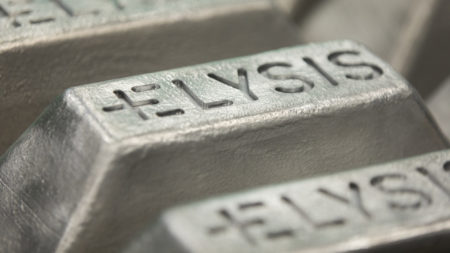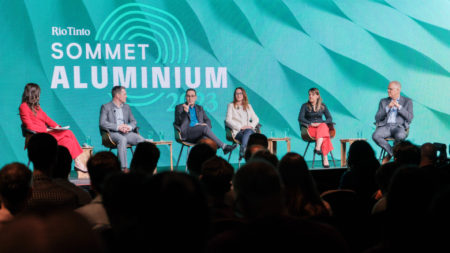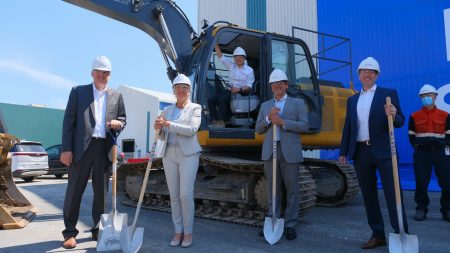ELYSIS progresses toward its commercial demonstration and reaches the industrial stage

Carbon-free aluminium production has entered a new stage. ELYSIS is now successfully producing aluminium with no direct greenhouse gas emissions at its Industrial Research and Development Centre at Complexe Jonquière.
Producing aluminium at the ELYSIS Industrial Research and Development Centre is a big leap forward. The process uses a complete industrial design comparable in size to the small smelting pots currently used in the industry.
Ivan Vella, Managing Director at RTA, explained, “This carbon-free technology is a major step in redefining the aluminium production process, which dates back over 100 years. It will help to counteract the environmental issues associated with aluminium production, including significant levels of carbon consumption (even though the metal itself plays a key role in decarbonising the planet). Rio Tinto is eager to roll out this revolutionary carbon-free technology and supply its customers with the green aluminium they have been waiting for.”
Commercial Demonstration in 2023
At the moment, our priority is to accelerate the industrial scaling of the ELYSIS technology, with a view to demonstrating even larger commercial-sized pots in 2023. These prototype pots are being constructed at the end of the existing production line at Alma Works, and the project is progressing well.
The protype inert anode pots will operate with an electrical current of 450 kA, which is commensurate with the commercial scale typical of large modern aluminium smelters. The industrial pots are designed to be used as replacements for the existing pots and in the construction of new pots, and their size can be adjusted as needed.
Based on the current pace of development, ELYSIS expects its technology to be ready to be installed starting in 2024, with production of larger volumes of carbon-free aluminium following about two years after.
Strengthening the Supply Chain in 2023
ELYSIS has begun detailed planning of the industrial scaling of the supply chain, which is necessary for marketing the technology in the future. In 2022, ELYSIS will begin designing and engineering a facility capable of producing the patented, revolutionary materials that underpin its inert anode, carbon-free smelting process.
Alcoa and Rio Tinto launched the ELYSIS joint venture in 2018. The inert anode technology that ELYSIS is now industrially scaling was developed using a process originally refined by the Alcoa Technical Centre outside Pittsburgh. The ELYSIS carbon-free, oxygen-emitting technology also integrates Rio Tinto’s latest innovations in next-generation pot production design. Together, these two innovations allowed ELYSIS to develop a revolutionary industrial technology that combines durability and performance.
The aluminium manufactured during the ELYSIS research and development phases is already used by Apple, a non-equity investor in the technology, AB InBev (for Michelob Ultra cans) and Audi (for the wheels of its eTron GT).


